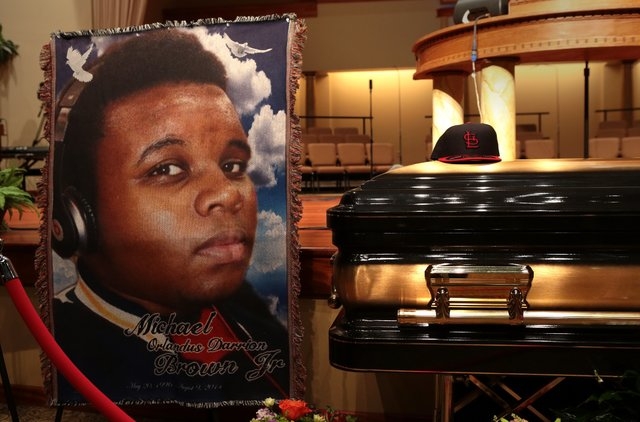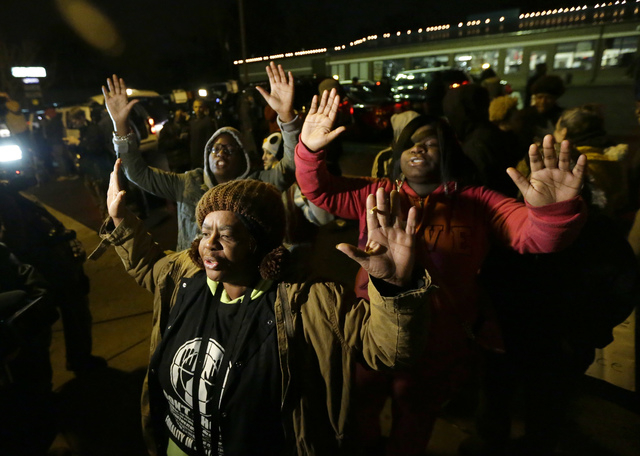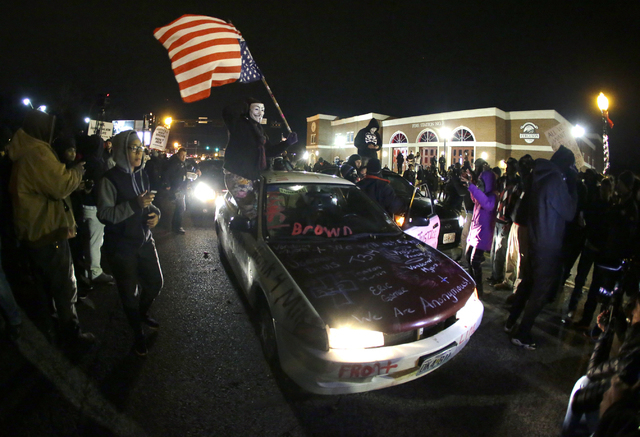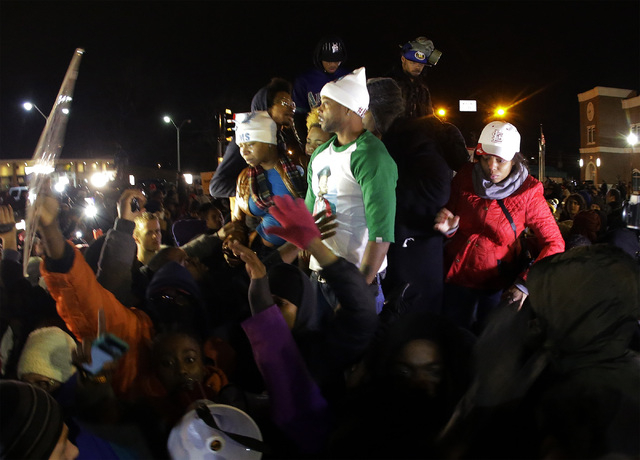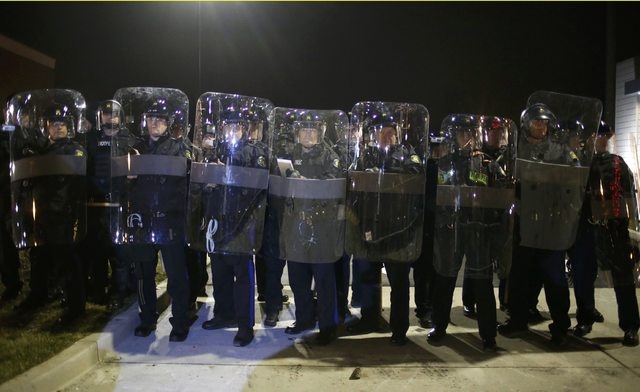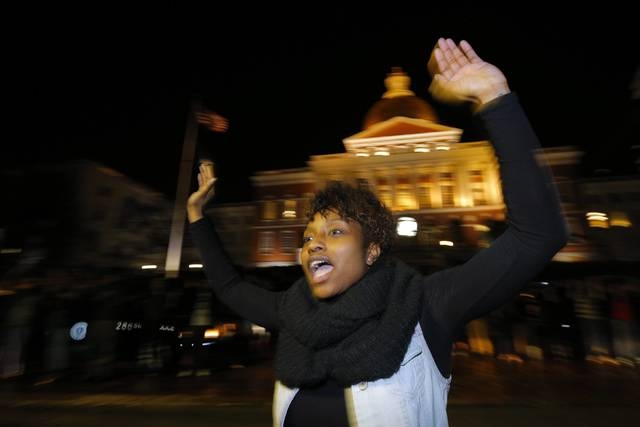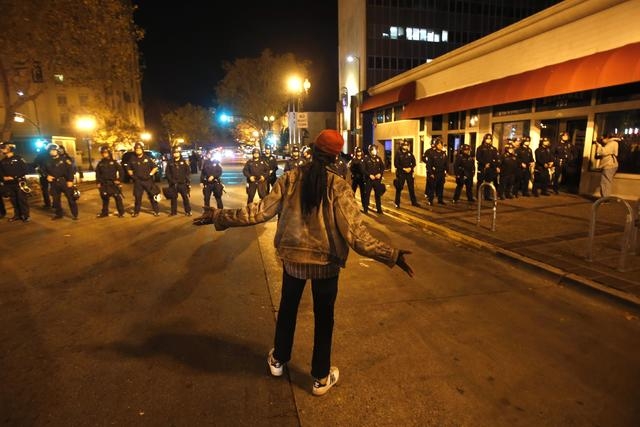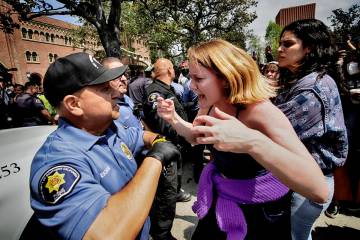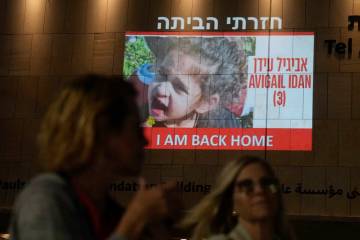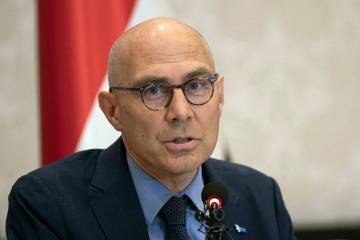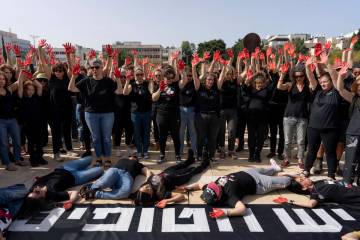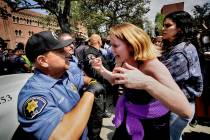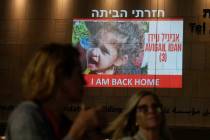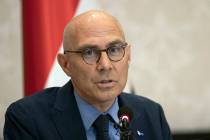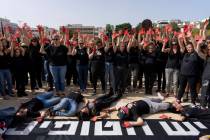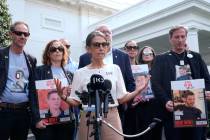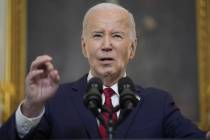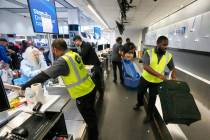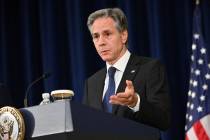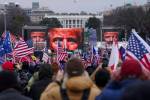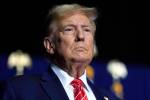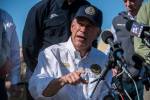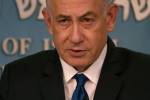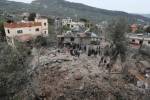Fire, looting, flight restrictions following Michael Brown decision
- Grand jury declined to indict officer Darren Wilson in the death of Michael Brown
- FAA now diverting some St. Louis-bound flights because of reports of gunshots fired into the sky
- Police who formed a wall of clear riot shields outside the precinct were pelted with bottles and cans
- Officials urged tolerance and assured residents that the National Guard would provide security at critical facilities
- Thousands of people rallied in other U.S. cities, including Los Angeles and New York to protest
- President Obama appealed for calm and understanding, pleading with both residents and police to show restraint
ST. LOUIS — The Federal Aviation Administration is diverting some St. Louis-bound flights to other airports because of reports of gunshots fired into the sky in Ferguson following a grand jury’s decision not to indict the white police officer who fatally shot a black 18-year-old.
The FAA says about 10 flights had been rerouted from Lambert-St. Louis International Airport as of 11:30 p.m. CST Monday. The reason cited was “to provide a safe environment for law enforcement activities.”
The airport posted on Twitter that only inbound planes, not departures, are affected. The facility remains open.
For two weeks after the August shooting, the FAA restricted flights on 37 square miles of airspace, including for news helicopters. The FAA says media aircraft currently are flying just above the flight restriction zone over Ferguson.
——-
FERGUSON, Mo. — Gunshots were heard and bottles were thrown as anger rippled through a crowd outside the Ferguson Police Department in suburban St. Louis after authorities on Monday announced that a grand jury voted not to indict a white officer in the August shooting death of an unarmed black teen.
Whistles pierced the air as some of the hundreds of protesters tried to keep the peace, shouting, “Don’t run, don’t run.”
Police who formed a wall of clear riot shields outside the precinct were pelted with bottles and cans as the crowd surged up and down the street immediately after authorities said the grand jury voted to not indict Officer Darren Wilson in the shooting death of 18-year-old Michael Brown.
“Murderers, you’re nothing but murderers,” the crowd shouted. One woman, speaking through a megaphone said, “Stinking murderers.”
Not far from the stretch of Ferguson that saw the worst of the rioting after Brown’s fatal shooting in August, dozens of police and military vehicles were poised for possible mass arrests.
“They need to feel the pain these mothers feel at the (expletive) cemetery,” shouted Paulette Wilkes, 40, a teacher’s assistant who was in the crowd at the police department.
A smaller, calmer crowd of about three dozen protesters gathered outside the courthouse where the grand jury had met, including one white woman holding a sign reading, “Black Lives Matter.” Many of the protesters looked stunned.
“That’s just how the justice system works - the rich are up there and the poor are down here,” said Antonio Burns, 25, who is black and lives in the Ferguson area. The police “think they can get away with it.”
A handful of Amnesty International volunteers in bright vests tried to maintain the peace. Brown’s family immediately urged a non-violent response to the grand jury’s decision.
Officials urged tolerance and assured residents that the National Guard would provide security at critical facilities like fire houses, police stations and utility substations.
“I do not want people in this community to think they have to barricade their doors and take up arms,” St. Louis County Executive Director Charlie Dooley said ahead of the announcement of the decision.
Elsewhere in the United States, protesters gathered in mostly peaceful demonstrations. In New York, protesters massed in the streets of Times Square, shouting and pounding drums.
In Chicago, dozens of protesters gathered outside police headquarters, sang protest songs, called out the names of black people killed by the Chicago police, read statements and poems and chanted, “Hey, ho, these killer cops have got to go.”
——-
GRAND JURY DOESN’T INDICT FERGUSON COP IN SHOOTING
A grand jury declined Monday to indict white police officer Darren Wilson in the death of Michael Brown, the unarmed, black 18-year-old whose fatal shooting sparked weeks of sometimes-violent protests and inflamed deep racial tensions between many African-Americans and police.
Within minutes of the announcement by St. Louis County’s top prosecutor, crowds began pouring into Ferguson streets to protest the decision. Some taunted police, shattered windows and vandalized cars. Several gunshots were also heard. Officers used tear gas to disperse the gatherings.
Prosecuting Attorney Bob McCulloch said the jury of nine whites and three blacks met on 25 separate days, hearing more than 70 hours of testimony from about 60 witnesses, including three medical examiners and experts on blood, toxicology and firearms.
“They are the only people that have heard and examined every witness and every piece of evidence,” he said, adding that the jurors “poured their hearts and soul into this process.”
As McCulloch read his statement, Michael Brown’s mother, Lesley McSpadden, was sitting atop a vehicle listening to a broadcast of the announcement. When she heard the decision, she burst into tears and began screaming before being whisked away by supporters.
The crowd with her erupted in anger, converging on the barricade where police in riot gear were standing. They pushed down the barricade and began pelting police with objects, including a bullhorn. Officers stood their ground.
At least nine votes would have been required to indict Wilson. The grand jury met in secret, a standard practice for such proceedings.
Speaking for nearly 45 minutes, a defensive McCulloch repeatedly cited what he said were inconsistencies and erroneous accounts from witnesses. When asked by a reporter whether any of the accounts amount to perjury, he said, “I think they truly believe that’s what they saw, but they didn’t.”
The prosecutor also was critical of the media, saying “the most significant challenge” for his office was a “24-hour news cycle and an insatiable appetite for something — for anything — to talk about.”
In his statement, McCulloch never mentioned that Brown was unarmed when he was killed.
Brown’s family released a statement saying they were “profoundly disappointed” in the decision but asked that the public “channel your frustration in ways that will make a positive change. We need to work together to fix the system that allowed this to happen.”
Authorities released more than 1,000 pages of grand jury documents, including Wilson’s testimony.
Wilson told jurors that he initially encountered Brown and a friend walking in a street and, when he told them to move to a sidewalk, Brown responded with an expletive.
Wilson then noticed that Brown had a handful of cigars, “and that’s when it clicked for me,” he said, referring to a radio report moments earlier of a robbery at a nearby convenience store.
Wilson said he asked a dispatcher to send additional police, then backed his vehicle up in front of Brown and his friend. As he tried to open the door, Wilson said Brown slammed it back shut.
The officer said he then pushed Brown with the door and Brown hit him in the face. Wilson told grand jurors he was thinking: “What do I do not to get beaten inside my car.”
“I drew my gun,” Wilson told the grand jury. “I said, “Get back or I’m going to shoot you.”
“He immediately grabs my gun and says, “You are too much of a pussy to shoot me,” Wilson told grand jurors. He said Brown grabbed the gun with his right hand, twisted it and “digs it into my hip.”
Asked why he felt the need to pull his gun, Wilson told grand jurors he was concerned another punch to his face could “knock me out or worse.”
Brown then fled, and Wilson gave chase. At some point, Brown turned around to face the officer.
Witness accounts were conflicted about whether Brown walked, stumbled or charged back toward Wilson before he was fatally wounded, McCulloch said. There were also differing accounts of how or whether Brown’s hands were raised. His body fell about 153 feet from Wilson’s vehicle.
Thousands of people rallied in other U.S. cities, including Los Angeles and New York to protest Monday’s decision, leading marches, waving signs and shouting chants of “Hands Up! Don’t Shoot,” the slogan that has become a rallying cry in protests over police killings across the country.
President Barack Obama appealed for calm and understanding, pleading with both residents and police to show restraint.
“We are a nation built on the rule of law, so we need to accept that this decision was the grand jury’s to make,” Obama said. He said it was understandable that some Americans would be “deeply disappointed — even angered,” but echoed Brown’s parents in calling for any protests to be peaceful.
The Justice Department is conducting a separate investigation into possible civil rights violations that could result in federal charges, but investigators would need to satisfy a rigorous standard of proof in order to mount a prosecution.
The department also has launched a broad probe into the Ferguson Police Department, looking for patterns of discrimination.
The Aug. 9 shooting heightened tensions in the predominantly black St. Louis suburb that is patrolled by an overwhelmingly white police force. As Brown’s body lay for hours in the center of a residential street, an angry crowd of onlookers gathered. Rioting and looting occurred the following night, and police responded with armored vehicles and tear gas.
Protests continued for weeks — often peacefully, but sometimes turning violent, with demonstrators throwing rocks and Molotov cocktails and police firing smoke canisters, tear gas and rubber bullets. Missouri Gov. Jay Nixon briefly summoned the National Guard.
Throughout the investigation, some black leaders and Brown’s parents questioned McCulloch’s ability to be impartial. The prosecutor’s father, mother, brother, uncle and cousin all worked for the St. Louis Police Department, and his father was killed while responding to a call involving a black suspect in 1964.
McCulloch was 12 at the time, and the killing became a hallmark of his initial campaign for elected prosecutor.
A Democrat, McCulloch has been in office since 1991 and was re-elected to another term earlier this month.
RELATED
Vigil honors black teen shot by Missouri police
Ferguson officer says he feared for life in shooting
Autopsy report: Missouri teen shot at close-range
Justice Dept. criticizes handling of Mo. teen shooting
Mo. governor declares state of emergency, activates National Guard
Cop who fatally shot Ferguson teen is now married




